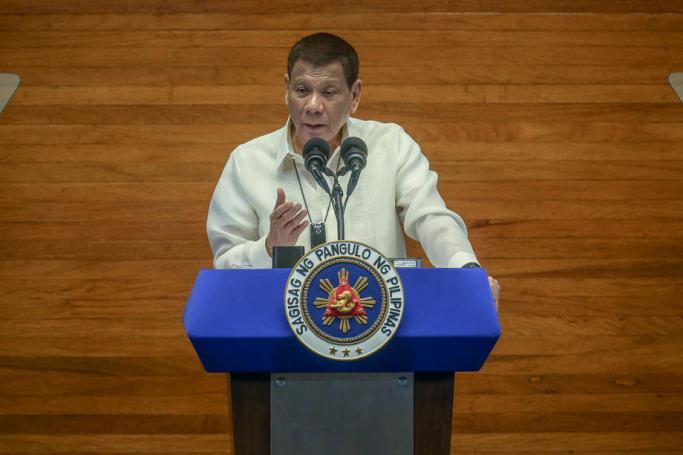Philippine President Rodrigo Duterte said Monday drug offenders should be executed by lethal injection, in a fresh push for the death penalty as part of his anti-narcotics crackdown that has killed thousands.
In a wide-ranging State of the Nation address, Duterte also admitted the government's response to the coronavirus epidemic had been "far from perfect" as the number of infections surged past 82,000, with nearly 2,000 deaths.
Duterte had been expected to use the annual speech to lawmakers to lay out a roadmap for recovery after the economy contracted with millions of jobs lost during more than four months of a nationwide lockdown.
But he provided few details.
Instead, he took the opportunity to once again push Congress, which is dominated by his allies, to restore the death penalty -- an unrealised plank of the tough-on-crime platform that helped get him elected in 2016.
It comes weeks after he signed an anti-terrorism law that critics and rights defenders fear will be used to target government opponents.
"I reiterate the swift passage of a law reviving the death penalty by lethal injection for crimes specified under the Comprehensive Dangerous (Drugs) Act of 2002," Duterte told a drastically reduced audience of legislators, wearing face masks and sitting far apart because of the virus.
The UN Human Rights Council called last month for an independent probe into the drug war that it said had unleashed widespread and systematic killing with "near impunity" for offenders.
Butch Olano, section director for the Philippines of Amnesty International, said capital punishment was not a solution.
"President Duterte's favourite solution to public clamour for safety, whether from drug-related or virus-related problems, has always been to make harsher laws that seek to instil fear among Filipinos," Olano said in a statement.
A mainstay of the Philippine penal system during more than 300 years of Spanish colonial rule, capital punishment was outlawed in 1987.
It was reintroduced six years later and then abolished again in 2006.
Protesters were not allowed to march outside Congress this year due to virus restrictions and thousands instead held an anti-government rally at a university in the capital Manila ahead of Duterte's speech.
© AFP












